In the realm of classic Westerns, few names resonate as powerfully as John Wayne. 1971 saw the release of Big Jake, a John Wayne movie that not only solidified his enduring appeal but also offered a unique glimpse into his family life, both on and off-screen. This captivating film, Big Jake, brought together John Wayne and his three sons, marking a special moment in cinematic history and showcasing the passing of the torch to a new generation within the Wayne family.
Big Jake casts John Wayne as Jacob “Big Jake” McCandles, a seasoned rancher who returns home amidst turmoil. His ranch has been attacked, and his young grandson, Little Jake, has been kidnapped by the notorious Fain Gang. Driven by a fierce determination and unwavering courage, Big Jake embarks on a perilous journey to rescue his grandson and avenge his family. Adding to the film’s familial dimension, Big Jake also features Christopher Mitchum, son of the legendary Robert Mitchum, and Wayne’s long-time friend and co-star Maureen O’Hara, portraying his estranged wife, Martha McCandles.
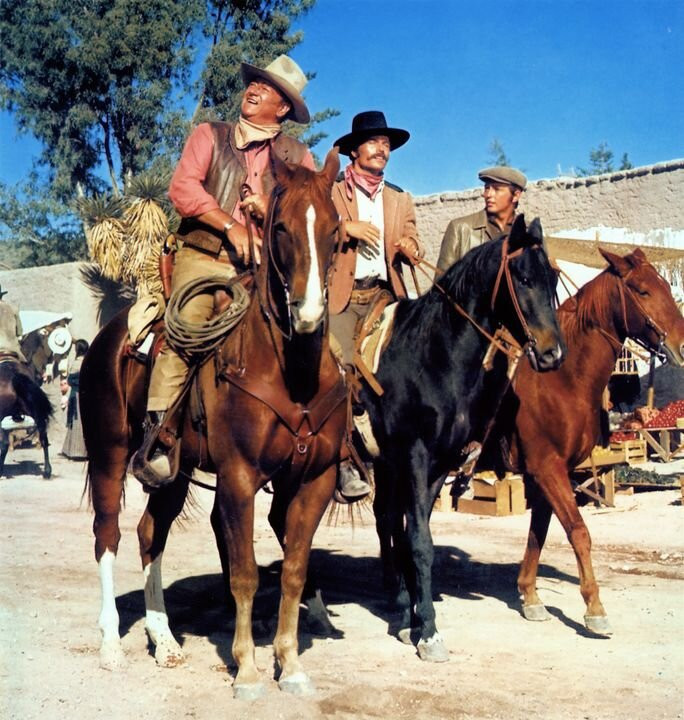 John Wayne, Patrick Wayne and Christopher Mitchum in Big Jake.
John Wayne, Patrick Wayne and Christopher Mitchum in Big Jake.
John Wayne alongside his real-life sons Patrick Wayne and Christopher Mitchum in the film Big Jake, showcasing a family affair in a classic Western.
However, Big Jake transcended the typical John Wayne picture. It evolved into a genuine family affair, prominently featuring Wayne’s three real-life sons: Michael, Patrick, and Ethan. This casting choice provided a poignant visual narrative, illustrating John Wayne’s journey as a Hollywood icon, a cultural symbol, and a powerful patriarch imparting invaluable life lessons to his sons and, by extension, to audiences worldwide. The film subtly mirrored Wayne’s own life, reflecting his role as a father figure guiding his sons in their own paths.
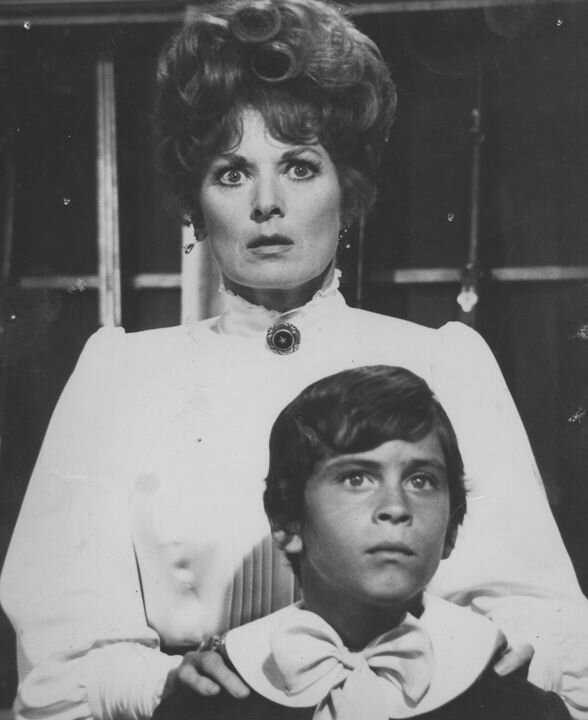 Maureen O’Hara and Ethan Wayne, Big Jake.
Maureen O’Hara and Ethan Wayne, Big Jake.
Maureen O’Hara and Ethan Wayne in Big Jake, highlighting the multi-generational cast of the John Wayne Western.
This year marks the 50th anniversary of Big Jake, a milestone that celebrates not only the film itself but also John Wayne’s enduring legacy. To commemorate this special occasion, Patrick Wayne, Ethan Wayne, and Christopher Mitchum, key figures in the film, participated in a panel discussion at Fort Worth Stockyards on November 3rd. This event took place at John Wayne: An American Experience, a dedicated exhibit spanning 10,000 square feet at the Stockyards, honoring the life and career of The Duke. This panel offered fans a unique opportunity to hear firsthand accounts and behind-the-scenes stories from those who were intimately involved in the making of Big Jake.
John Wayne’s path to stardom was as compelling as his on-screen persona. Born Marion Robert Morrison in 1907, he moved with his family from Iowa to Southern California at the age of six. His athletic prowess led him to the University of Southern California (USC) on a football scholarship. However, a bodysurfing accident curtailed his football ambitions. Undeterred, the imposing 6’4” Wayne found work behind the camera at Fox Film Corporation, starting as a prop man before progressing to stand-in roles and extra work.
During his formative years at Fox, Wayne cultivated crucial relationships with Hollywood’s directorial giants, notably John Ford and Raoul Walsh. His first credited speaking role came in Ford’s 1929 film Salute. The pivotal moment arrived when Raoul Walsh recognized Wayne’s leading man potential, casting him in the starring role of The Big Trail (1930). Following nearly a decade of steady film work, John Wayne’s career trajectory shifted dramatically with his iconic portrayal of the Ringo Kid in Ford’s 1939 blockbuster Stagecoach. This role propelled him into Hollywood’s highest echelons, establishing him as a major star.
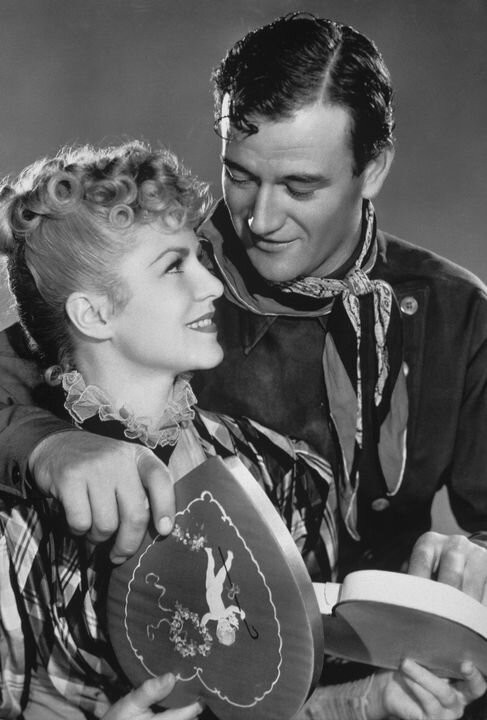 John Wayne and Claire Trevor in Stagecoach.
John Wayne and Claire Trevor in Stagecoach.
John Wayne and Claire Trevor in Stagecoach, the film that catapulted Wayne to superstardom and defined his Western persona.
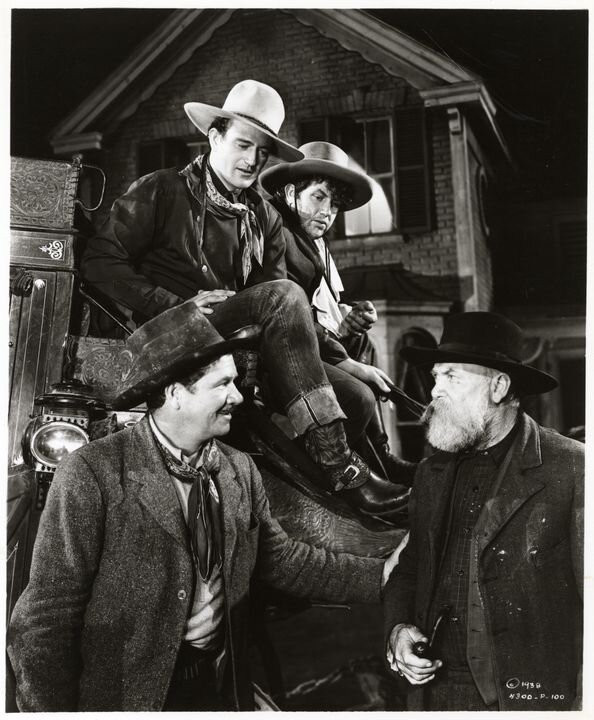 John Wayne in Stagecoach.
John Wayne in Stagecoach.
A classic portrait of John Wayne in Stagecoach, embodying the rugged individualism that became synonymous with his name.
From Stagecoach onwards, John Wayne’s star ascended relentlessly. He became a global symbol of American values, embodying strength, resilience, and unwavering resolve. He established his own production company, Batjac Productions, further solidifying his control over his career and creative output. He also embraced fatherhood, raising seven children. By the time Big Jake commenced filming, his eldest son, Michael, had taken on the role of producer, Patrick Wayne was cast as his on-screen son James McCandles, and his youngest son, Ethan, played his grandson Little Jake. This level of family involvement made Big Jake a deeply personal project for John Wayne.
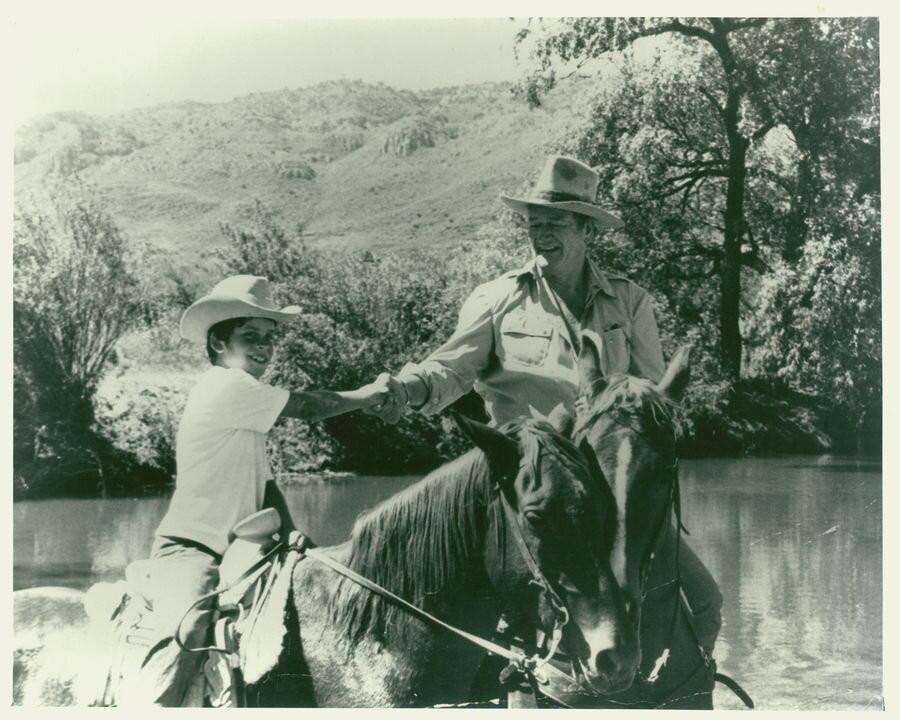 John Wayne with his youngest son Ethan.
John Wayne with his youngest son Ethan.
John Wayne with his son Ethan Wayne, capturing a tender moment between father and son on the set of Big Jake.
Big Jake is imbued with John Wayne’s characteristic value system, emphasizing courage, determination, and unwavering commitment to justice. His on-screen persona in Big Jake served as a powerful example for his sons, both in the film and in real life. Patrick Wayne reflected on his father’s approach to guidance: “He wasn’t a person to give advice on any level… I think he operated by example.” Despite being set in 1909, a period of rapid change, Wayne’s character, McCandles, staunchly defends traditional methods, favoring his horse over a motorcycle and his trusted gun over modern weaponry. The film subtly acknowledges Wayne’s status as an elder statesman, a figure from a bygone era. In a recurring humorous exchange in Big Jake, his character is repeatedly greeted with “I thought you were dead,” to which Wayne’s McCandles firmly retorts, “Not hardly.” Even five decades after Big Jake, this iconic response resonates, reflecting the timeless impact of John Wayne’s cultural legacy.
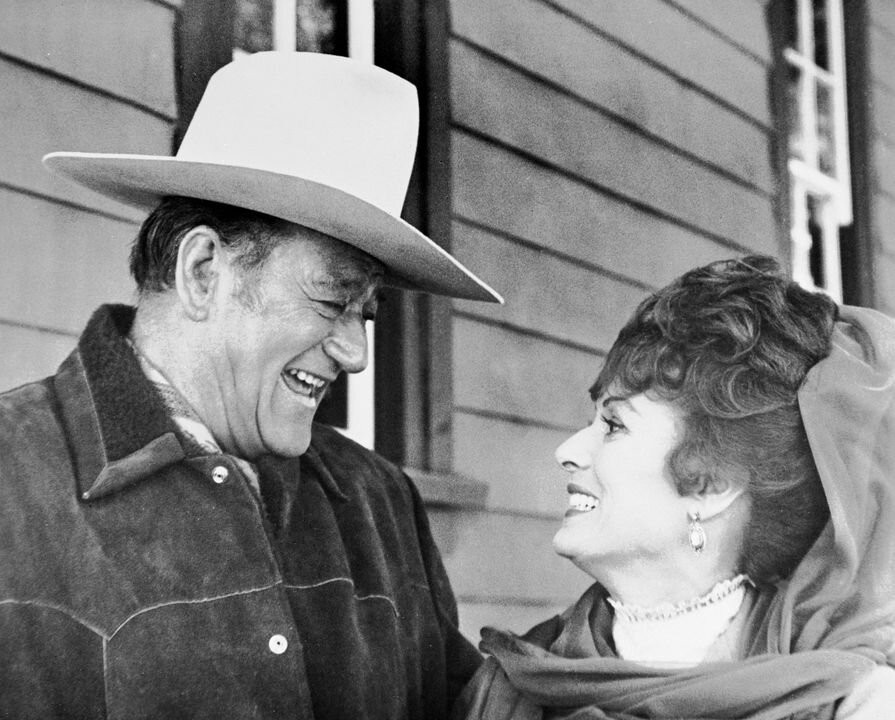 John Wayne and Maureen O’Hara in Big Jake.
John Wayne and Maureen O’Hara in Big Jake.
John Wayne and Maureen O’Hara in Big Jake, reuniting the iconic duo in a Western setting and adding to the film’s classic appeal.
The Big Jake panel discussion featuring Patrick Wayne, Ethan Wayne, and Christopher Mitchum on November 3rd provided a unique opportunity for fans to delve deeper into the world of this classic John Wayne Western. The event commenced with a pre-panel cocktail reception at 5:30 p.m. at the John Wayne: An American Experience exhibit, followed by the live panel discussion at 7:30 p.m. at the Cowboy Channel Studio. Tickets were priced at $40 per person, with proceeds benefiting the John Wayne Cancer Foundation, a testament to the Wayne family’s ongoing commitment to charitable causes.
